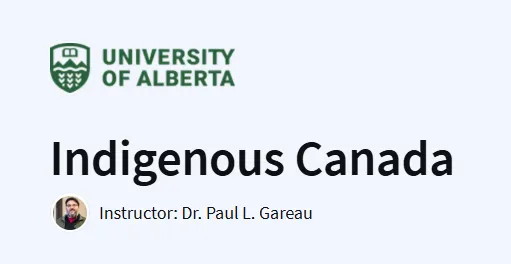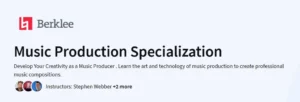What you will learn in Indigenous Canada Course
- Gain insight into Indigenous worldviews, traditions, and storytelling.
- Learn about the impacts of colonization, treaties, and Indigenous-settler relations.
- Understand the history and effects of policies like the Indian Act and residential schools.
- Explore Indigenous rights, self-governance, and land claims.
- Analyze contemporary Indigenous activism, reconciliation efforts, and social justice movements.
- Discover ways to support Indigenous communities through allyship and advocacy.
Program Overview
Indigenous Worldviews and Governance
⏱️ 2-3 weeks
In this section, you will learn about Indigenous philosophies, governance structures, and ways of knowing.
- Explore Indigenous oral traditions and knowledge-sharing practices.
- Understand Indigenous legal systems and governance.
- Learn about Indigenous spirituality and its connection to the land.
The Impact of Colonization
⏱️3-4 weeks
This module explores the effects of European contact and colonization on Indigenous communities.
- Examine historical policies like the Indian Act and their long-term consequences.
- Understand the history of residential schools and their impact on generations of Indigenous families.
- Learn about Indigenous resistance and survival strategies.
Treaties and Indigenous Rights
⏱️3-5 weeks
This section delves into treaty-making, Indigenous sovereignty, and self-determination.
- Understand the significance of treaties in Canadian history.
- Analyze land disputes and ongoing legal battles over Indigenous rights.
- Learn about the role of Indigenous leadership in self-governance.
Contemporary Indigenous Issues
⏱️4-6 weeks
This part of the course focuses on modern challenges and social movements.
- Explore issues like missing and murdered Indigenous women and girls (MMIWG).
- Learn about Indigenous activism and advocacy for environmental justice.
- Discuss reconciliation efforts, including the Truth and Reconciliation Commission.
Cultural Revitalization and Reconciliation
⏱️ 5-6 weeks
The final section examines Indigenous resurgence and efforts to preserve culture and language.
- Learn about Indigenous-led initiatives in education and cultural preservation.
- Understand the role of Indigenous media, arts, and storytelling.
- Explore pathways for non-Indigenous people to support reconciliation.
Get certificate
Job Outlook
- Employers in education, government, and social work value Indigenous studies knowledge.
- Organizations are prioritizing diversity, inclusion, and Indigenous relations training.
- Understanding Indigenous perspectives is beneficial for roles in policy, law, and environmental advocacy.
- Knowledge of Indigenous governance can support careers in public administration and business.
- Growing demand for Indigenous consultants and cultural educators.
Specification: Indigenous Canada Course
|
FAQs
- It’s a beginner-level, 12-module MOOC from the University of Alberta’s Faculty of Native Studies, now accessible worldwide via Coursera.
- It explores the histories, perspectives, and contemporary experiences of Indigenous peoples in CourseraUniversity of Alberta
- With an educator of Indigenous heritage—Dr. Paul L. Gareau—this course brings authentic voices to core topics like colonial impact, treaty processes, activism, and Indigenous art, culture, and governance.
- You’ll explore topics like Indigenous worldviews, the fur trade, treaty-making, the Indian Act, and the impact of residential schools.
- Later modules delve into Indigenous activism, urban Indigenous life, gender and identity, political movements like Idle No More, and Indigenous expression through art.
- The course builds intercultural awareness through storytelling, critical social understanding, and reflections on justice and sovereignty.
- Why it stands out:
- Highly rated (4.8) and trusted by learners worldwide.
- A chance to learn from Indigenous scholars with authenticity and depth.
- A meaningful way to engage with Canadian history, reconciliation, and cultural understanding.
- Potential limitations:
- Some learners note issues with transcripts, formatting, and outdated course notes that can impact accessibility.
- Still, many recommend it as an essential, respectful starting point for anyone looking to learn honestly without burdening Indigenous people to teach.





